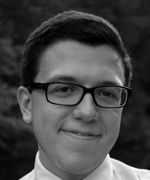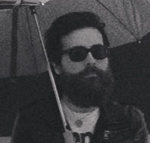When I Google my name, mostly embarrassing things appear, like art that I made in high school (why?) It’s really bizarre to think about; that if someone searched my name looking for the digital representation of the things I consist of, they would come across a plethora of images that I had no idea were scattered across the internet. It’s horrifying for me to think about, really.
I guess to some extent, there’s a digital archive of who I am scattered across the internet like a digital breadcrumb trail of links that have brought me to right now.
The last time I made a palpable bloop on the Internet, I wrote a letter to the Committee to Save Cooper Union (CSCU) about why I decided not to go to a prestigious art, architecture, and engineering school called the Cooper Union.
Because my letter is the #1 search result if you were to search my name, it is my most important Internet presence: my digital raison d-etre.
For those of you who don’t follow news in higher ed, some brief background:
The Cooper Union is a famous art, engineering, and architecture school founded by industrialist and philanthropist Peter Cooper in 1859. In his original charter, Peter Cooper intended education to be “as free as air and water”. However, after some sketchy financial decisions and the construction of a space station-esque engineering building, Cooper Union was in a deep, dark financial shit hole.
So Cooper Union starting charging tuition the year I so eagerly, hopefully (naively) applied. I hoped that things would change. I prayed that it wasn’t true.
Womp womp.
But it was true. After 150 years of free tuition, students occupied President Jamshed Bharucha’s office in protest and alumni, students, and faculty responded with outrage. So when I got my acceptance to Cooper, I had to turn it down; which in turn led me to a chain of interactions with several student and alumni activists in CSCU, and I signed on as a litigant for the Committee to Save Cooper Union lawsuit against the school’s board of trustees. I hid in the woods over the summer to work on trails, and completed my affidavit from the White Mountains of New Hampshire. I tried to let my feelings for Cooper blow over at the peaks of mountains. When I returned to school at the University of Richmond, I overwhelmed myself with classes, club meetings, and internships. However, I still felt compelled to stay active from a distance by reading article after article and touching base with lawyers and students now and again. But for the most part, I was felt too far away to think that my participation was significant.
But the internet would claim otherwise. All I have to do is Google my name.
After signing the consent decree, I celebrated wildly inside my head that maybe I’d done something that mattered. So I scanned that baby and sent it off to into digital cyberspace to be received by lawyers who could use it as a pipe bomb to destroy tuition at Cooper.
My inner celebration was not enough, however. A few weekends ago, I hopped on a train to New York. I needed some physical interaction for everything that I had felt a twinge of connection to. I also wanted to be present for the final hearing for the agreement between CSCU and the Board of Trustees. So after six hours on Amtrak, I was physically where I started on this whole rollercoaster: 41 Cooper Square. Except this time, I was inextricably a part of this movement to save it.
When I got to New York, I finally got to shake hands with folks from CSCU who I had only encountered in long e-mail chains and as entities on Facebook. People who had affected my life, but whom I’d never really met. I went to a Q+A session about the consent decree that I’d signed at the Nonstop Cooper space, and was a totally anonymous individual until a friend of mine, Joe Riley, pointed me out as one of the litigates.
Later, at a party held at the Nonstop Cooper space, I was sitting in a circle with other Cooper students who were a part of the movement. “You’re Izzy?!” was the exclamation that followed my introduction, and I was taken aback by the notion that these people had read my letter and knew what had brought me there in that moment; This was a very disorienting experience, one that seems very bittersweet to me now. It was then that I truly felt a part of something bigger than I was, and not just a digital bystander.
Participating in the fight for free Cooper Union made me very aware of my digital trace. I feel more or less that Google has created an arbitrary character for me, though maybe I now have the opportunity to curate my identity in search engines. This column that I write for Digital America is hopefully the beginnings of that. It’s my way of continuing the pixel trail I started when I was (and still am) a silly kid who wanted to go to an art school that was free. It’s my way of saying that I still exist. Cooper Union still exists. That there is more work to be done for the school and higher education in general. There is still more I can do.
So instead of Google locating random figments and calling it a self-portrait, I want it to be a list of ways I have actually contributed to things I can really get behind. My experience with the Committee to Save Cooper Union is something I’m proud to have be the central search query for my name.
And to who ever writes the algorithms for the rankings of items that appear when you Google someone, would you please make sure that my high school art portfolio gets buried in the deepest, darkest realms of the 29th page? Thank you.



